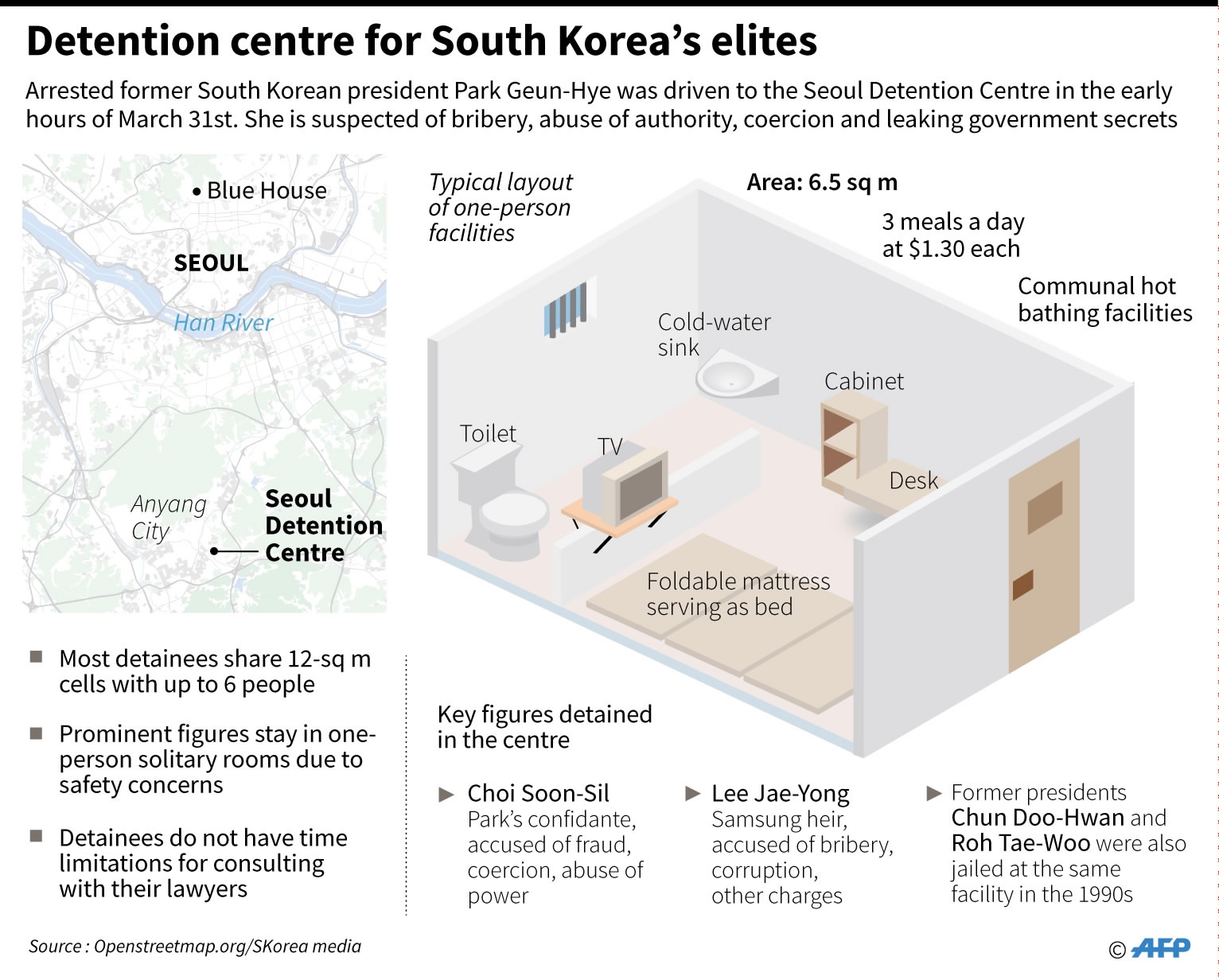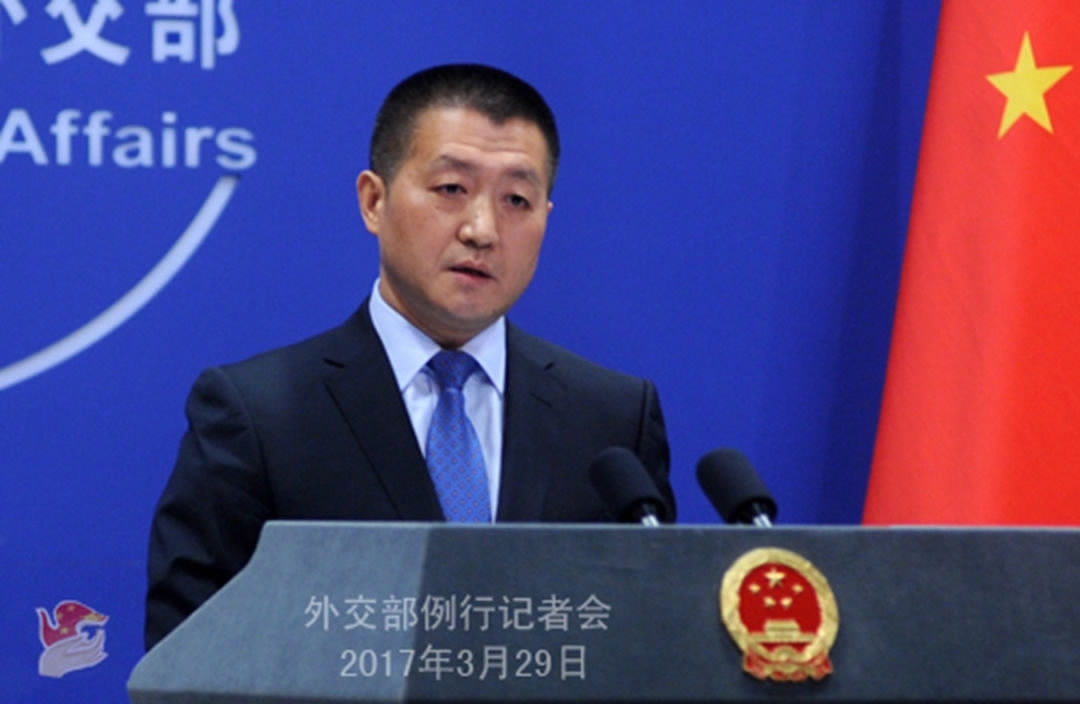A South Korean court on Friday approved a warrant to arrest ousted president Park Geun-hye, the country's first female leader, on accusations of bribery and abuse of power.
Park can be held in a cell for up to 20 days while she is investigated over allegations that she colluded with a friend, Choi Soon-sil, to pressure big businesses to contribute to now-defunct foundations set up to back her policy initiatives.
A judge at the Seoul Central District Court said in a statement that "the cause and the need for the warrant are recognized as the main charges against her have been verified and as evidence could be destroyed."
About two hours after the ruling, Park was driven to the Seoul Detention Center located just outside of the city in a black sedan, with two female investigators escorting her, televised news showed.
CGTN
Her supporters shouted her name and waved South Korean flags as she arrived at the detention center just before 5 a.m. local time, behind a cordon formed by the police to prevent the crowd from following her in and mixing with any Park opponents, who were also at the scene.
Park gave about eight hours of testimony at the same court on Thursday and was held at the prosecutors' office next door while the judge studied the evidence and arguments to decide on whether to issue the arrest warrant.
Park may be given a bigger cell than other inmates in a Seoul detention facility, but she would be subject to the same rules on everything from meals to room inspections, former prosecution and correctional officials have said.

'Unfair not to seek a warrant'
Park was removed from office earlier this month when a constitutional court upheld her impeachment by parliament. The ruling sparked protests by hundreds of her supporters and a festive rally by those who had demanded she be removed from office.
"It would be unfair not to seek a warrant considering that her accomplice, Choi Soon-sil, as well as those government officials who followed her direction and the ones who gave kickbacks, have all been detained," the prosecution said in a statement earlier.
Following Park’s political scandal, public outcry for reform of the South Korea's powerful family-run conglomerates, known as chebol, has been raised. At least three conglomerates are currently being investigated: the Samsung Group, the Lotte Group, and the SK Group.
CGTN

Third former president arrested for criminal allegations
Park became the country’s third former president to be arrested on allegations of criminality, following Roh Tae-woo and Chun Doo-hwan.
In 1996, former presidents Chun and Roh were jailed on charges of corruption. On December 16, they were also found guilty of treason and mutiny when they took office.
Chun was sentenced to death. That sentence was changed to a life sentence. Chun and Roh were pardoned a year later.
China-South Korea ties under Park
China and South Korea were close allies in the early years of Park’s presidency, with the respective presidents visiting each other’s countries.
A free trade agreement between China and South Korea took effect in 2015, the year which saw bilateral trade hit a record high of 276 billion US dollars.
However, relations took a dramatic turn for the worse last July, when South Korea confirmed plans to deploy the US THAAD (Terminal High Altitude Area Defense) anti-missile system. Park said it would provide self-defense against the nuclear threat from the DPRK.
THAAD an obstacle for China-South Korea ties
For THAAD to work, South Korea will employ a radar detecting system which is able to probe areas within a radius of 3,000 kilometers. This range goes beyond the DPRK and reaches far into Chinese territory.
On Wednesday, China’s Foreign Ministry spokesman Lu Kang reiterated China’s opposition to the deployment of THAAD in South Korea. “The deployment of the THAAD system in South Korea is a part of the move by the US to boost its global missile defense system and has a bearing on the peace and stability of Northeast Asia,” Lu said at a routine media briefing.

China’s Foreign Ministry spokesperson Lu Kang answers questions from reporters in a regular press conference on March 29, 2017. /MOFA Photo
South Korea will hold a new round of presidential elections on May 9, following Park’s impeachment. Park’s former rival, Moon Jae-in of the Democratic Party of Korea, is currently leading opinion polls, and is widely regarded as the frontrunner.
One of Moon’s advisers told Reuters on March 24 that Moon would “do a review of the validity of the decision” to deploy THAAD if elected, and would consult both the US and China.
953km










